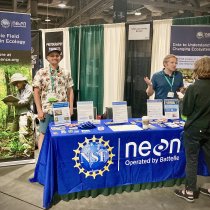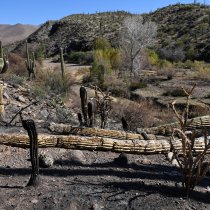Inaugural Data Institute: reproducible remote sensing science using NEON data
September 15, 2016
In mid-June, 23 early career scientists from far and wide descended upon NEON headquarters for a week-long Data Institute. The inaugural Institute featured NEON remote sensing data and focused on reproducible science methods with the goal of giving participants an understanding of how NEON data may be used to help answer questions they couldn’t previously address.
Participants came from institutions in the USA, Canada and the Netherlands. While 70% of the participants were graduate students, the Data Institute also attracted an undergraduate, post-docs, and university research staff and faculty.
Institute attendees were interested in using remote sensing data to answer a wide range of questions from wanting to be able to characterize forest structure and composition to using time series to detect vegetation disturbance patterns using remote sensing data.
Sarah Graves, from the University of Florida, said, “The NEON Data Institute gave us the tools to work with novel ecological data. With our own knowledge of the domain combined with NEON data and tools, we are in a position to ask novel ecological questions that will advance the field of ecology beyond what has been traditionally possible.” Jeff Atkins of Virginia Commonwealth University added, “Ecology increasingly depends on "big data" and remote sensing and scientists need the skills necessary to work with this data and to inform their hypotheses. NEON does an amazing job at helping scientists learn how to work with and use a suite of data and data products.”
Couldn't attend the Institute but interested in the course materials? We've made them all available online for you to work through at your own pace. Learn more about the Institute including how to access the course materials online.


